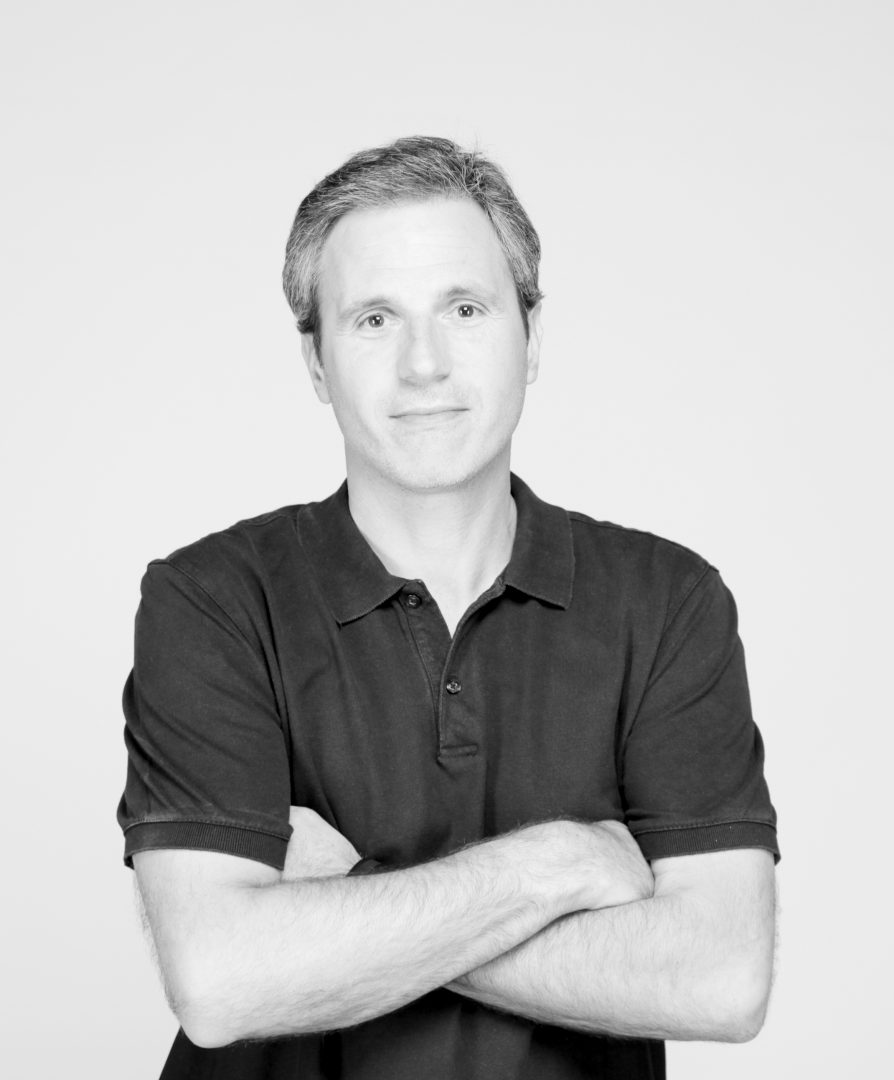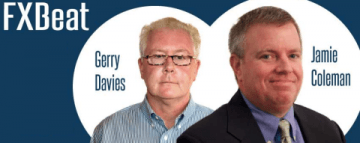Traders DNA has the pleasure to interview Francesc Riverola, founder and President of FXstreet.com. Francesc was one of the key players in the inception of the online forex industry, and his hard work on the FxStreet platform has proved to be one of the catalysts for Forex trading industry rapid growth and global expansion. FXStreet remains the top Forex independent multi-language platform website and top publisher group in the industry.
He is a dedicated personality and thought leader that deserves huge respect for his achievements – and also for the work he continues to do on a daily basis in his own platform and as an industry innovator. Traders DNA proudly went into detail with a long interview that goes through his background and how he sees the online Forex industry, regulation issues, social media and many other related challenges and subjects. This interview is also important to see how Francesc sees Forex and trading progressing in the future.

Can you tell us about you and your background?
Sure, I am an economist for the University of Barcelona and I did an executive program at IESE business school. I got started in the FX world in 1997 as a webmaster of a FX advisory firm in Barcelona. When the firm shut down, I decided to launch my own FX portal FXstreet.com. From its launch in 2000 to September last year I held the post of CEO, which I have since passed to Carolina May. I am now President of the company and also in charge of the social side of the business.
Can you tell us about the FXStreet project, the different projects related and the company behind it?
FXstreet.com was launched as a home business in early 2000, and in February 2001 the company FOREXSTREET SL was created it. FXstreet.com is a vertical FX portal that tries to be the meeting point for everyone involved in the FX industry, especially traders. To do this, we offer real-time rates and charts, news, research, organize webinars, economic calendar and we provide education as well. Everything under one roof. The site is currently offered in 16 languages and it also has a fast growing social site forexstreet.net.
What were the motivations behind the initial launch of FXStreet and its related projects?
As I said before, I was running the site of a FX advisory firm. I tried to make a portal inside a corporate website and it was working wonders. The traffic was growing and the firm was making many clients via the web site, so I wanted to convert that into a real FX portal and I did as soon as I finished my relationship with the firm.
Our main motivation has always been to put together a site you can trust and you rely on. The financial industry leitmotiv is money. Only money. My obsession is value. Creating and generating value for everyone interacting with our firm and our sites. If we accomplish that, money will come.
You have been in the forefront of the Forex industry since its inception. As the forex market continues to grow and the industry matures how do you see the challenges of the industry to answer to that growth?
The industry is now facing an extraordinary process of consolidation. M&A is everywhere and many players are just disappearing. I would say that this process has gone too far too fast, but the tightening of the legal situation in the USA is distorting everything. Also, the economic crisis has not helped at all, keeping volatility in the doldrums for so long. So it is a deadly combination of factors that at this time, I have no clue how this might end. Common sense tells me that in the early 2000 the FX industry – the retail side – moved from London to New York and now it seems it is going back to London. From here to the moon? time will tell, but unless FX players start doing things right, FX won’t become an asset class for the main street. No signs of this yet.
With disruptive innovation changing the face of finance industry, coupled with new regulations, financial instability and increasing challenges with compliance, what in your opinion are the key subjects to consider?
Tighter regulation is making FX less atractive in the eyes of the potential users, but at the same time it should help the industry to keep gamblers away and it should help to have stronger and more serious companies providing FX access to retail customers. But not all countries take regulation the same way, so there are too many bucket shops popping up in countries with soft regulation like New Zealand or Cyprus, which is not making things easier for serious firms. These bucket shops carry out very aggressive marketing campaigns and offer extraordinarily low spreads to attract clients. As market makers, they make all their money from the losses of their clients, so why bother with spreads? This, in turn, forces serious firms to drive down their spreads. So the industry has gone from making too much from every client to maybe not making making enough.
On the side of new technology, there seems to be fierce competition in the mirror trading business. There is a belief that making things simpler they will attract ‘mama and papa’ to the market. It is possible indeed for this to happen, I have seen some good technology on this direction, but it is a little bit scary if it is not done properly.
What do you think have been the biggest changes in the past few years for Forex traders, and what do you see as being the biggest challenges going forward?
The impact of monetary policies had in recent years – and will have in the years to come. This use (and abuse) of force has made a lot of economic theories obsolete and therefore entire forecasting models. The monetary system requires a reset and this may come in the form of the US dollar abandoning it’s role as reserve currency, probably to give way to a digital non-denominational world currency for reserve purposes. Big banks trading with clients’ money is also something that is in its final phase, which will imply that liquidity will drop even more. A combination of low liquidity and high volatility driven by uncertain economic conditions – never seen in human history – can be devastating for the majority of people trying to trade the markets.

Can you comment on how traders are changing their actions with the emergence of innovative new ways of trading and advances of FinTech?
In the retail sphere, we haven’t really seen drastic changes in the way people trade. The majority is still very short-term focused, high leveraged, and betting their capital on single trades. This makes them very sensitive to spreads and volatility, and it doesn’t help to circumvent the usual cognitive errors we as humans are prone to do. These errors have to do with taking profits too early and letting losses run. All this hasn’t changed and technology hasn’t addressed this topic.
Do you think using technology for trading is going to make trading a completely different activity in future?
It depends on what kind of technology we develop. Latest developments with mirror and copy trading and social mood indicators, just to mention two technologies en vogue, are not helping the majority of traders who still lose money in the long run. I am of the opinion that we will be facing facing very severe economic conditions which could change the macrostructure of the forex markets in the next 5 to 10 years. Trading will be conducted as a means of long-term wealth preservation, rather than a short-term speculative activity. This means that a lot more people could become interested in the Forex markets, but they would trade more realistic volumes.
What are your thoughts about the rise in algorithm trading, machine / high-speed trading and how traders and the industry can cope / adapt with that?
Algorithms are based on hypothesis, which in turn are made by humans. Other than increasing the likelihood of more liquidity driven flash-crashes, I don’t see that markets have become more efficient because of HFT. Reaction-times are accelerating, but that is not only because of technology, it’s a social-cultural phenomena. As we speak, that is making short-term trading increasingly difficult. I believe in technology to make the world better, more efficient, business cycles more balanced, markets more transparent. But if you ask me who will be able to beat the markets during this decade, I tell you the ones with a rare combination of knowledge and trained intuition.
How has FxStreet been changing the face of forex trading?
Well, I hope FXstreet has changed the face of Forex trading for good. Our goal the last 13 years has always been to help traders to make better trading decisions. To do that they need better and faster information, so we have always been working in that direction. Sometimes with great success, sometimes with no success at all.
I think that FXstreet has become a very familiar brand for FX traders. Like family, someone you know that it is out there and you can always count on him. At least, this is the way I wish I would be seen by traders, and their feedback during all these years is pointing in that direction.
The last few years have given rise to a massive online community of forex traders and social media trading. How can traders use this digital and social networks to their advantage in your opinion?
Traders are using social communities to share ideas and to have support from others when trading. There is still a lot of noise in communities and social sites that needs to be cleaned. I mean, too many guys still there trying to sell their stuff, but I guess this is will come with the consolidation of the social media industry.
My suggestion to traders would be: do not try to be on top of everything, you will drive yourself nuts. There are many different communities and social sites out there. Have a look around, start by picking individuals you like, and just listen to them – but do not ever let others do your job for you. So you listen to others, but it is you that trades and you have to take your own decisions whether for good or bad.
What are your views about platforms such as MT4 and copy trading?
 MT4 has had an enormous success. Amazing. It has become an standard for the FX industry and it is here to stay. The only threat to its future is MT5 and how Metatrader will do the transition from one to the other. So far, all their attempts to drag people from MT4 to MT5 have failed, so under my point the only threat to MT4 dominance come from within Metatrader and what they do/how they do with MT5.
MT4 has had an enormous success. Amazing. It has become an standard for the FX industry and it is here to stay. The only threat to its future is MT5 and how Metatrader will do the transition from one to the other. So far, all their attempts to drag people from MT4 to MT5 have failed, so under my point the only threat to MT4 dominance come from within Metatrader and what they do/how they do with MT5.
Regarding copy trading, it seems now to be the holy grail. The concept behind mirror trading is good and the expectations for growth are enormous, but at this time I have not seen anyone that has done it really well, and by that I mean that no one has put together a copy trading platform where investors really make money and traders being copied really see their good trading well rewarded.
For this reason, we have not yet entered into this market. Unless we see something where participants can really make money, we won’t enter.
Online marketing and Social Media has been leveraging Forex Trading to a new level, how do you see that?
FX online marketing is not what it was. The cost of client acquisition has gone through the roof, while trading volumes are drying up due lack of volatility in the markets, specifically in the second half of this and last year. This, along with tightening regulation worldwide (especially in the US where the market is disappearing), M&A due huge consolidation, and economic crisis – financial crises are good for volumes as volatility picks up, but economic crises drys volatility by driving world interests rates close to zero and keeping away from taking risks – what I call the “perfect storm”, has had a huge impact on the retail FX industry, and especially on online marketing.
The FX industry needs “fresh blood” as brokers call it. A new audience as the product is still attractive and the industry is now more serious. It could become an asset class, but to do that it needs to get mainstream, and it won’t do it as long as there are no big firms willing to invest in industry brand generation, and until of course volatility returns.
Regarding social media, I do not think it has changed FX trading so far. Will it change the way trading is done? I think this is for sure, but not yet.
FxStreet launched its own forex social network – http://www.forexstreet.net/. Can you tell us about it?
FXstreet was an unidirectional web site. So information flowing one way, without any return back from readers. While we solved that, we thought we could explore launching a separated community with a strong sense of group that could really make interaction a must in our net of sites. The results of the network are good and bad at once. Good because it seems it has a small but strong and loyal community. Bad because we have experienced all kind of human miseries that were close to destroying the site. We had to deal – with not much success to tell you the truth – with egos, hate, envy, spam attacks… you name it. Too many members had to be suspended and that makes it difficult at this time to evaluate the community as a positive or negative experience. Time will tell.
How do you see the rise of mobile trading?
In July I was in New York for a few weeks and I went to visit my friend and colleague Marc Prosser, former CMO at FXCM and now on its own. He told me that mobile trading is the future and that in a couple of years period most of the business will be done on mobile. I pretty much agree with Marc’s vision.
How do you see the future of the Forex Trading industry?
For me it is very important that FX trading keeps moving toward becoming an asset class. To do that, more steps need to be taken by all parties in the industry. Brokers need to make a transition to a new business model as the market-making cash cow is dead – or close to it. Regulators worldwide need to understand the business and put together the necessary regulation to run it smoothly, not to kill it. FX information sites need to get better and to educate traders that trading needs preparation and study, inviting gamblers to look for different industries. Traders need to educate themselves before blowing their first account, not after it. Software developers (platforms, mirror trading etc) need to think more about traders and investors and what they need than the profits they will be making.
Unless we see this change, the industry won’t evolve into what I am still expecting it will become: a real asset class
As the biggest independent player online, how is FXStreet positioning itself to remain at the forefront of forex online publishers?
 As I said before, our strategy has always been to try to get better and better. To remain at the forefront of the FX online publishers, we know that we must be faster and more flexible than we are right now. We also know that we have a long way to grow in education and the interaction with visitors. Our main efforts will be on those two fronts.
As I said before, our strategy has always been to try to get better and better. To remain at the forefront of the FX online publishers, we know that we must be faster and more flexible than we are right now. We also know that we have a long way to grow in education and the interaction with visitors. Our main efforts will be on those two fronts.
We must also make the site even more popular than it is. Getting Jamie Coleman and Gerry Davies – former founders at Forex Live – and their crew on board is a huge step towards that goal. Their FX Beat service is having a big eruption on our site, and after a week of having it online their numbers are more than promising.
As a Forex thought leader and industry player what is your main advice for Forex traders?
Well, if you are considering me a Forex thought leader then this industry has a big problem, so my advise would be: run! Now seriously, I already gave my advice a few lines above. Educate yourself. And if you are still not doing well, keep educating yourself. There are a lot of good educators out there, but you do not need to spend a dime. There are plenty of excellent resources that are free. On FXstreet we have a lot of them like a big online course called Learning Center or thousands of recorded webinars. Babypips has done a terrific job as well in this area of educating traders – beginners – and you can also find great advice and mentoring at Forex Factory. Again, you do not need to spend a dime on your education if you do not want to. It will take more time from you, but the results will be even better.
To give you an example, we had a guy named CVJ that for a couple of years attended ALL our webinars. ALL of them, and we make no less than 10 per day. After two years, he was hired as a money manager by an important Fund in the US. If he did it, you can do it as well.
Follow Francesc Riverola on Twitter @Francesc_Forex
Read More:
how to avoid revenge trading forex factory?
Dinis Guarda is an author, academic, influencer, serial entrepreneur and leader in 4IR, AI, Fintech, digital transformation and Blockchain. With over two decades of experience in international business, C level positions and digital transformation, Dinis has worked with new tech, cryptocurrencies, drive ICOs, regulation, compliance, legal international processes, and has created a bank, and been involved in the inception of some of the top 100 digital currencies.
Dinis has created various companies such as Ztudium tech platform a digital and blockchain startup that created the software Blockimpact (sold to Glance Technologies Inc) and founder and publisher of intelligenthq.com, hedgethink.com, fashionabc.org and tradersdna.com. Dinis is also the co-founder of techabc and citiesabc, a digital transformation platform to empower, guide and index cities through 4IR based technologies like blockchain, AI, IoT, etc.
He has been working with the likes of UN / UNITAR, UNESCO, European Space Agency, Davos WEF, Philips, Saxo Bank, Mastercard, Barclays and governments all over the world.
He has been a guest lecturer at Copenhagen Business School, Group INSEEC/Monaco University, where he coordinates executive Masters and MBAs.
As an author, Dinis Guarda published the book 4IR: AI, Blockchain, FinTech, IoT, Reinventing a Nation in 2019. His upcoming book, titled 4IR Magna Carta Cities ABC: A tech AI blockchain 4IR Smart Cities Data Research Charter of Liberties for our humanity is due to be published in 2020.
He is ranked as one of the most influential people in Blockchain in the world by Right Relevance as well as being listed in Cointelegraph’s Top People In Blockchain and Rise Global’s The Artificial Intelligence Power 100. He was also listed as one of the 100 B2B Thought Leaders and Influencers to Follow in 2020 by Thinkers360.





































